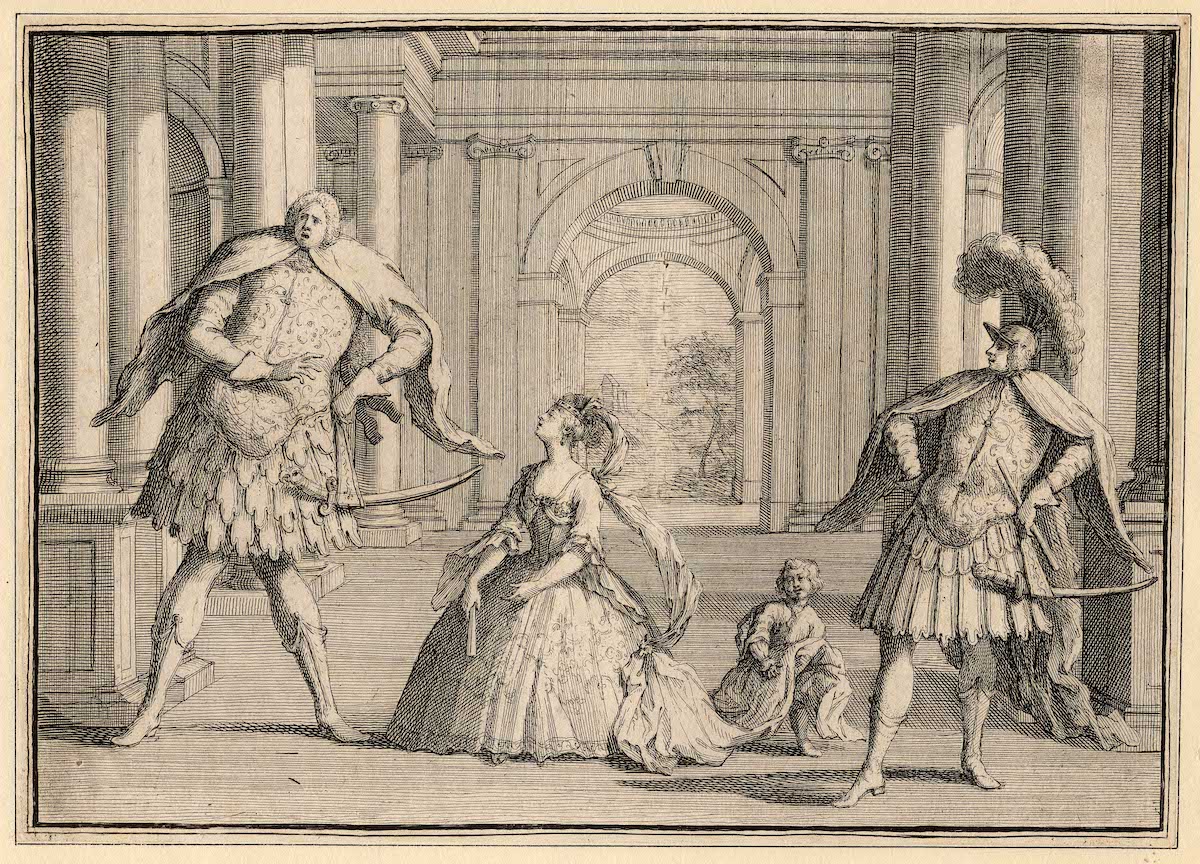It may seem surprising that George Frideric Handel, the German-born composer famed for his Italian operas, wrote music of great ‘Englishness’.
But several factors – including a great rivalry and intrigue between two warring opera companies – led Handel to turn away from Italian opera toward other forms, such as oratorio, later in his life.

Caricature of Handel’s Flavio, featuring opera singers Senesino (left), Francesca Cuzzoni (centre) and the castrato Gaetano Berenstadt (right).
With the backing of King George II, the Royal Academy of Music was established in 1719 to satisfy the aristocracy’s love of Italian opera, with Handel appointed as principal composer and Master of the Orchestra.
To challenge Handel’s dominance, the Prince of Wales countered by establishing the Opera of the Nobility in 1733. While these two Opera houses locked horns fighting for a share of audience and celebrity singers, the extravagances of their productions made the whole enterprise unprofitable.
Once the pinnacle of fashion,...










Comments
Log in to join the conversation.